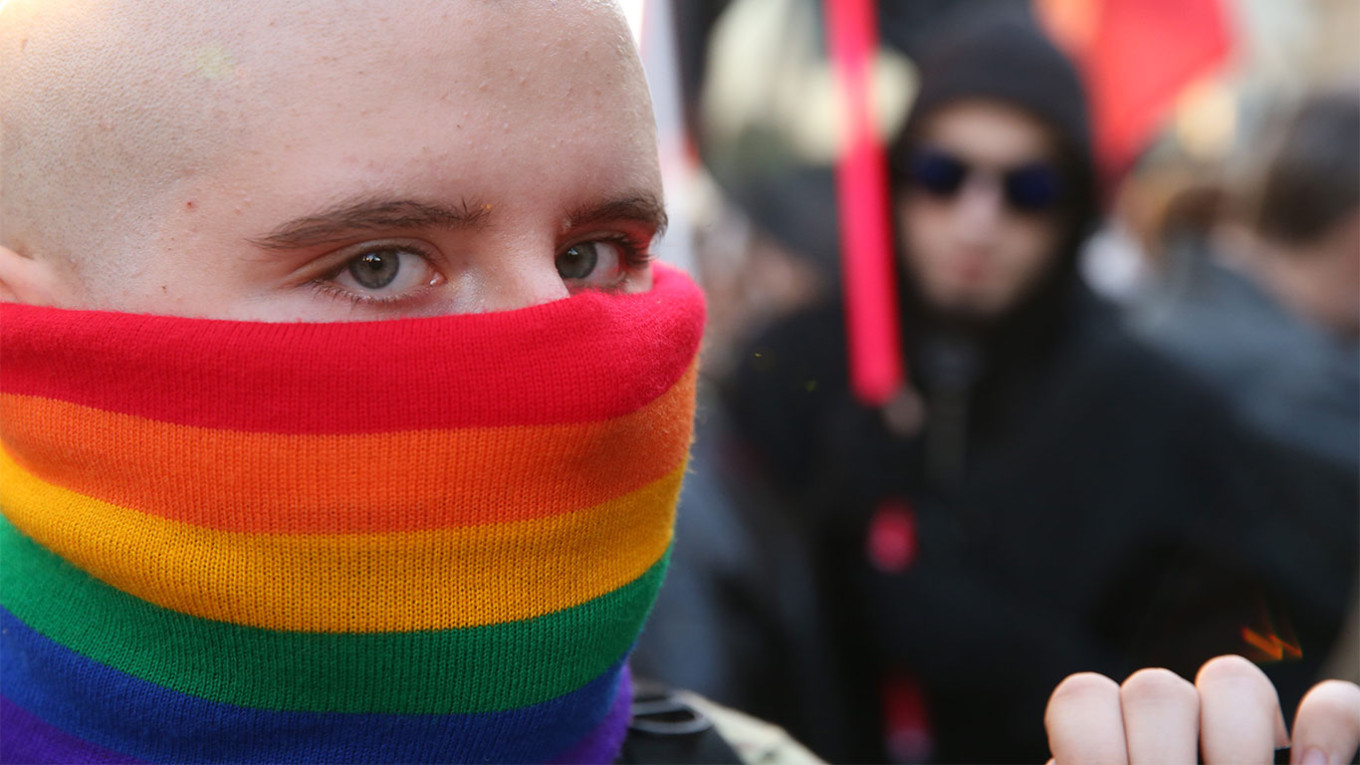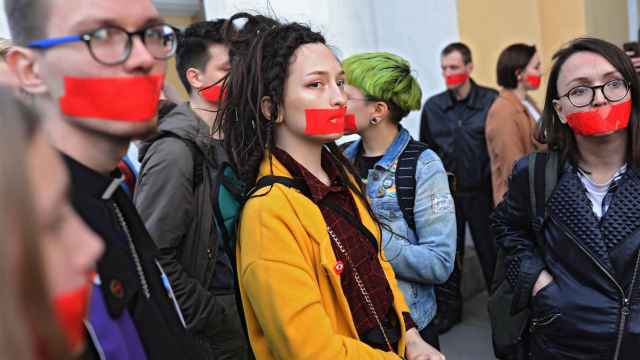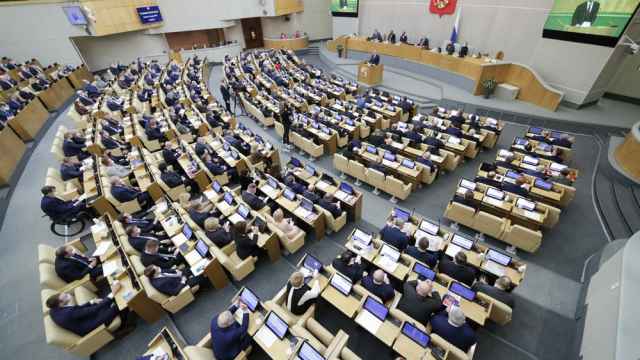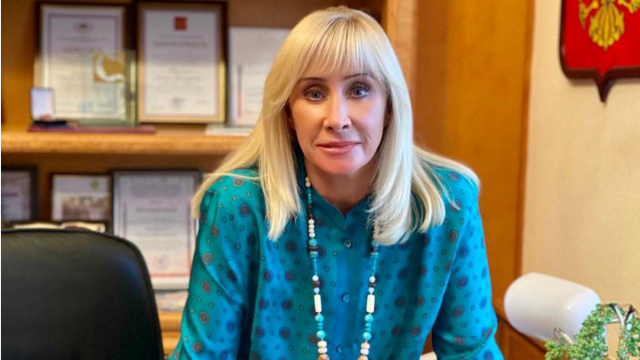Anti-gay legislation under consideration by the Russian parliament could drive the country’s embattled LGBT+ community entirely underground, activists and experts told The Moscow Times, as the Kremlin doubles-down on what it calls “traditional values” amid the Ukraine war.
Russian lawmakers last month backed a bill to expand an existing ban on LGBT “propaganda” in its first reading, and are currently looking at amendments that would mandate five-year jail terms for repeat offenders.
“Society will become considerably more closed,” Alexei Sergeyev, the head of the Heterosexual and LGBT Alliance rights group, said of the consequences if the bill becomes law.
“LGBT people will live increasingly in the shadows.”
Russia’s LGBT community already faces violence and marginalization as a result of widespread homophobia, which is often fueled by official rhetoric. But many fear the legislation now making its way through parliament would make the situation far worse.
Activists said there could be consequences for LGBT organizations, LGBT venues as well as books, films, theatrical plays and video games with LGBT content.
“This legislation will impact everyone, not just LGBT people,” said Noel Shaida, head of communications at the LGBT rights group Sphere Foundation, which was shut down by the authorities earlier this year.
“The scariest thing about these bills is that they encompass everything: films, TV series, media, advertising, publishing.”
The legislation — which could be signed into law by President Vladimir Putin as early as this month — builds on a controversial 2013 law banning the “propagandizing of non-traditional sexual relationships” to minors by banning such content aimed at all ages.
The bill also seeks to legally equate information about "non-traditional lifestyles" with pornography and codifies new offenses including the “propaganda of pedophilia” — often conflated with homosexuality by the authorities — and encouraging minors to have a sex change.
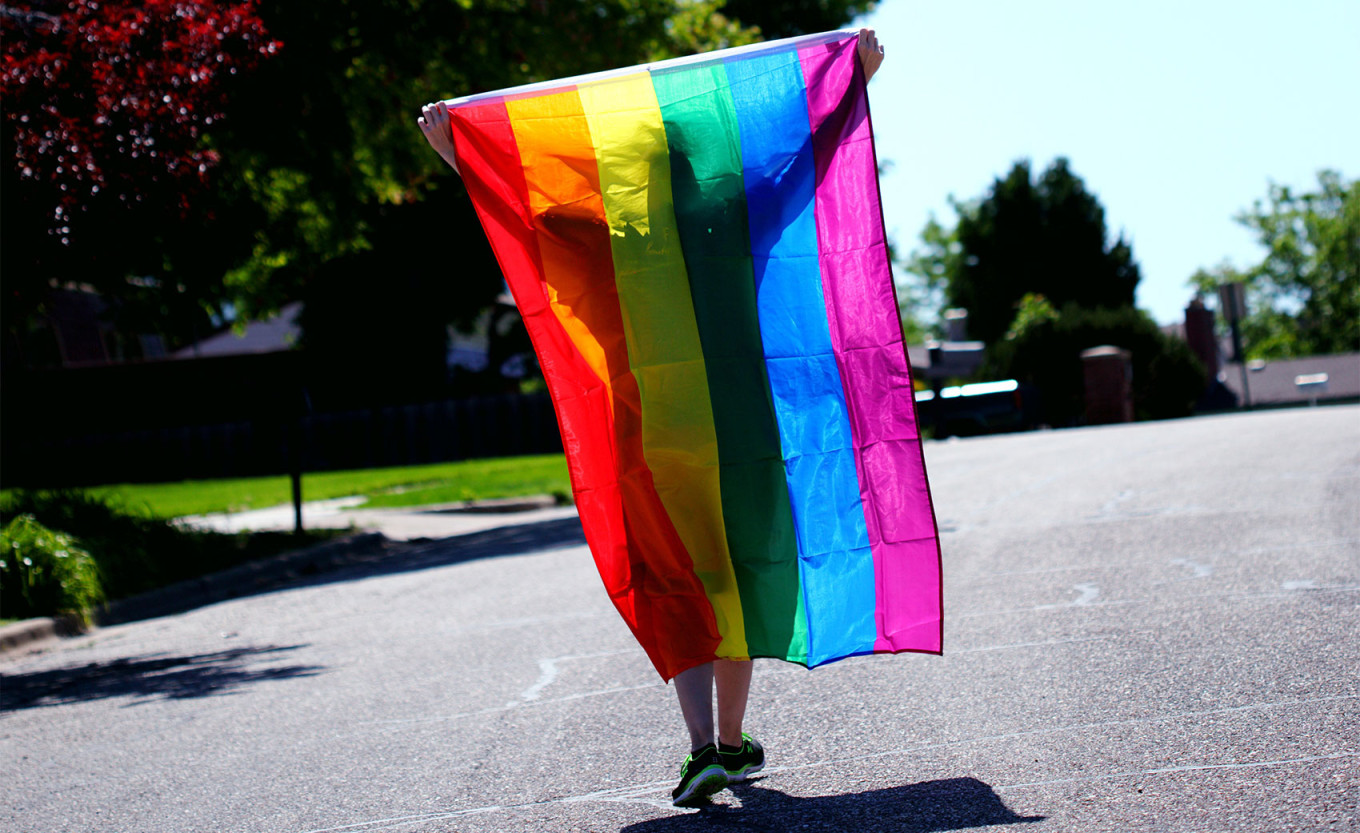
Fines for violations would be raised to up to 400,000 rubles ($6,500) for individuals and 5 million rubles ($81,000) for organizations.
Additionally, amendments proposed by two Communist Party deputies earlier this month would mean some offenses — including using the media to “propagandize non-traditional sexual relationships” — could be punished with multi-year jail sentences.
The most immediate impact if the bill does become law would likely be felt by LGBT rights organizations and commercial venues, activists said.
“The law will hit all organizations connected with LGBT very hard,” said Sergei, a coordinator at St. Petersburg LGBT group Pijama Friends who also works at a gay club.
As LGBT rights organizations would be at risk of crippling fines, many fear they could return to practices from the Soviet period, when homosexuality was criminalized.
“It’s going to hit LGBT organizations the hardest, as they are most visible,” Sergeyev told The Moscow Times. “They could very well become entirely secretive as in the Soviet Union, when [LGBT groups] met in private flats and used a kind of password system.”
Commercial LGBT venues would likely be unable to pay the large fines mandated under the law, and activists predicted many gay clubs and bars would shut down — or go completely underground in an attempt to avoid attention from the police.
There are also expected to be knock-on effects for theaters, cinemas, online aggregators, video game producers and advertisers.
“It’s cancel culture,” activist Shaida told The Moscow Times.
Many also believe that fears of fines and prison sentences will mean LGBT Russians, and organizations associated with the LGBT+ community, could start self-censoring and taking more steps to hide their identity.

“The club where I work is already writing ‘neutral’ posts [on social media] so it won’t get into trouble,” said Sergei, the Pijama Friends coordinator who requested to withhold his surname.
Many could even abandon the LGBT label entirely to avoid attracting attention.
“It’s a form of erasure. The more LGBT people erase their presence themselves… the more that stereotypes about LGBT people will thrive,” said Sergeyev.
While official homophobia has had a long history in Putin’s Russia, the current legislative focus on LGBT expression appears to be part of a broader crackdown on social minorities as the Kremlin seeks scapegoats for its setbacks in the Ukraine war.
“LGBT today is an element of hybrid warfare and in this hybrid warfare we must protect our values, our society and our children,” lawmaker Alexander Khinshtein, one of the new bill’s architects, said at a parliamentary hearing last month, Reuters reported.
The new legislation is not the only official attempt to promote “traditional values” since Russia’s February invasion of Ukraine.
Earlier this month, Putin signed a document entitled “The Foundations Of State Policy To Preserve And Strengthen Russian Traditional Spiritual And Moral Values.”
A Russian court also fined social network TikTok last month for refusing to delete LGBT content, and media regulator Roskomnadzor warned publishers about withdrawing all books containing “LGBT propaganda” in August.
“A new enemy is being created for Russians in the form of LGBT people,” said Margarita Shanfranskaya, a coordinator of the “People and Not Propaganda” campaign that is opposing the proposed legislation as it makes its way through parliament.
“Because of this, abuses by officials will increase,” she told The Moscow Times.
“At the same time, the number of crimes against LGBT people will also go up.”
A Message from The Moscow Times:
Dear readers,
We are facing unprecedented challenges. Russia's Prosecutor General's Office has designated The Moscow Times as an "undesirable" organization, criminalizing our work and putting our staff at risk of prosecution. This follows our earlier unjust labeling as a "foreign agent."
These actions are direct attempts to silence independent journalism in Russia. The authorities claim our work "discredits the decisions of the Russian leadership." We see things differently: we strive to provide accurate, unbiased reporting on Russia.
We, the journalists of The Moscow Times, refuse to be silenced. But to continue our work, we need your help.
Your support, no matter how small, makes a world of difference. If you can, please support us monthly starting from just $2. It's quick to set up, and every contribution makes a significant impact.
By supporting The Moscow Times, you're defending open, independent journalism in the face of repression. Thank you for standing with us.
Remind me later.



